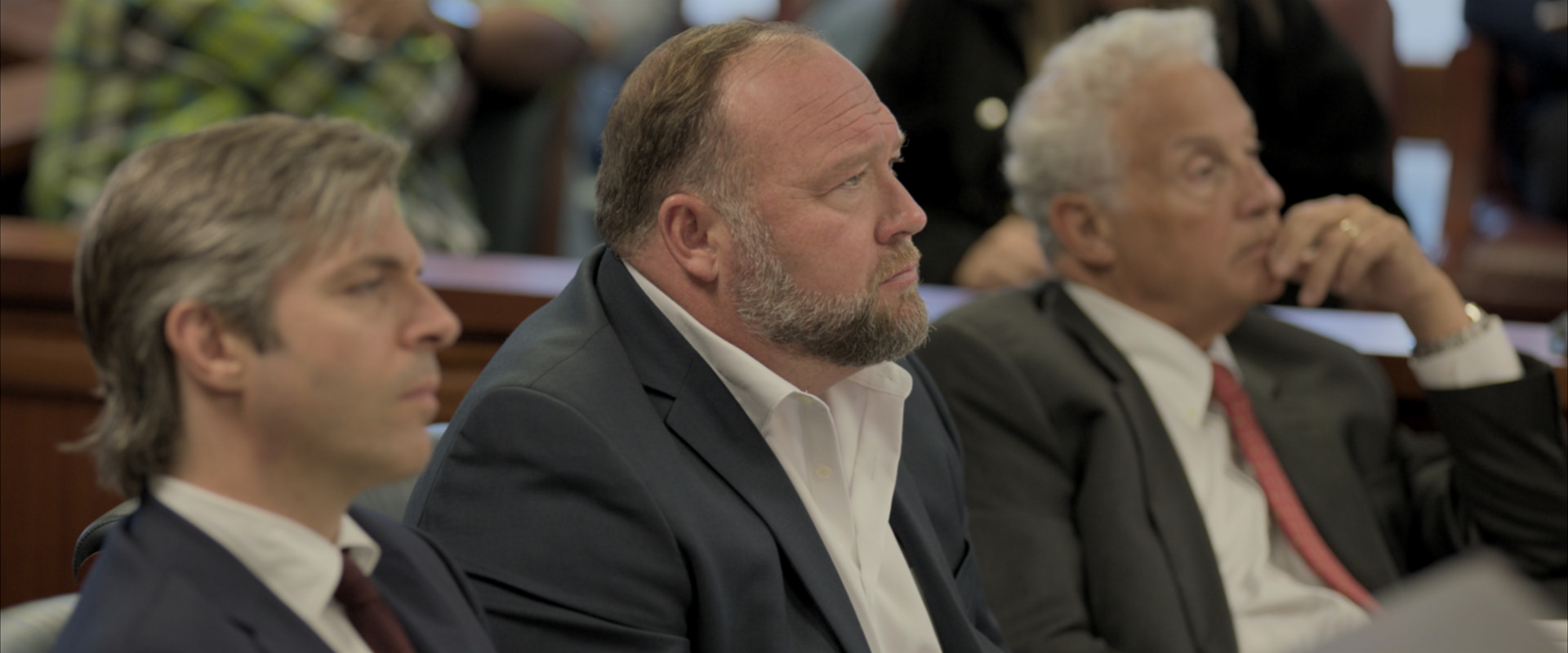In my first byline for Fairness and Accuracy in Reporting, I wrote about the recent documentary “The Truth vs. Alex Jones,” speaking to experts on Jones about the long-term damage he’s caused by spreading disinformation:
To lose a child to violence is already one of the most traumatic things a human being can experience. To compound that by seeing those deaths made the center of a seemingly limitless conspiracy theory pushes that suffering to a level that is almost inconceivable.
The Truth vs. Alex Jones, a documentary released last month from HBO/MAX, immerses us in the immense pain—and equally momentous bravery—of the parents and other surviving relatives of the victims of the 2012 Sandy Hook shooting, as they take on perhaps the most notorious conspiracy theorist of our age. Through exclusive courtroom footage and numerous emotionally vulnerable interviews, director Dan Reed (Leaving Neverland, Four Hours at the Capitol) brings the viewer inside the survivors’ legal efforts to force Alex Jones to face the consequences of his actions.
On the morning of December 14, 2012, a 20-year old man entered the Sandy Hook Elementary School in Newton, Connecticut. Over the course of about five minutes, he systematically slaughtered 26 people, mostly young children, then killed himself. He had murdered his mother earlier that day.
Through heart-wrenching interviews with first responders and forensic investigators, along with the recollections of the parents themselves, The Truth efficiently establishes the ruthless, inescapable reality of that rampage. However, the focus of the film is on Jones, the far-right talk radio host, and the court cases that the Newtown family members brought against him after six years of misery inflicted by him and his cohort of conspiracy-mongers.
The Truth vs. Alex Jones opens in the earlier days of his work, when he first rose to prominence through spinning conspiracy theories around the September 11, 2001, terrorist attacks. Through a quick survey of clips from his career in the ensuing decade, Reed depicts Jones’ transformation from an Austin, Texas–based public access weirdo into a powerful right-wing influencer who profited handsomely off lies, typically through selling supplements that would supposedly protect viewers from the very fears he invokes.
For example, one sequence shows employees of Infowars, Jones’ video and audio programming network, being sent to the West Coast in search of radiation from the 2011 Fukushima nuclear disaster. Back in the studio, Jones hawks anti-radiation snake oil. When his employees’ Geiger counters don’t detect high enough levels, he orders them to fabricate the evidence.
According to Rachel Carroll Rivas, interim executive director at the Southern Poverty Law Center’s Intelligence Project, these formative years for Jones and Infowars set the stage for the Sandy Hook conspiracies, but also the current conspiracy mindset that’s beset the United States as a whole in the era of QAnon.
Carroll Rivas told FAIR that “the early days of his claims around what happened in Oklahoma City, in Waco, and then his just continual drumbeat of lies about Jewish folks, about the Democratic Party, about families of mass shootings, about LGBTQ+ folks” created fertile ground for rampant disinformation. “Unfortunately, much of that damage, it has been done not only to those families, but it’s been done to American democracy.”
